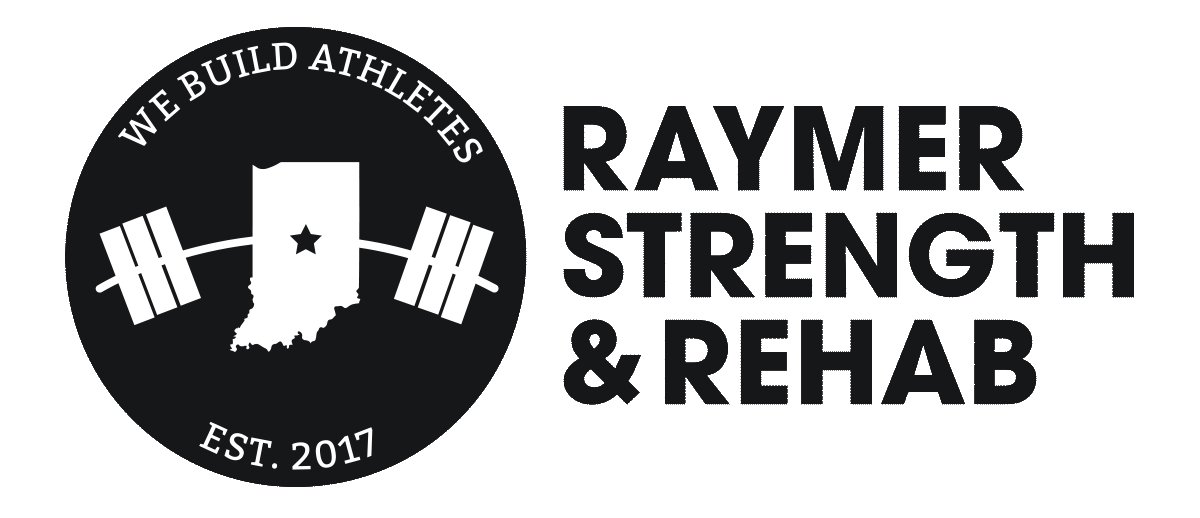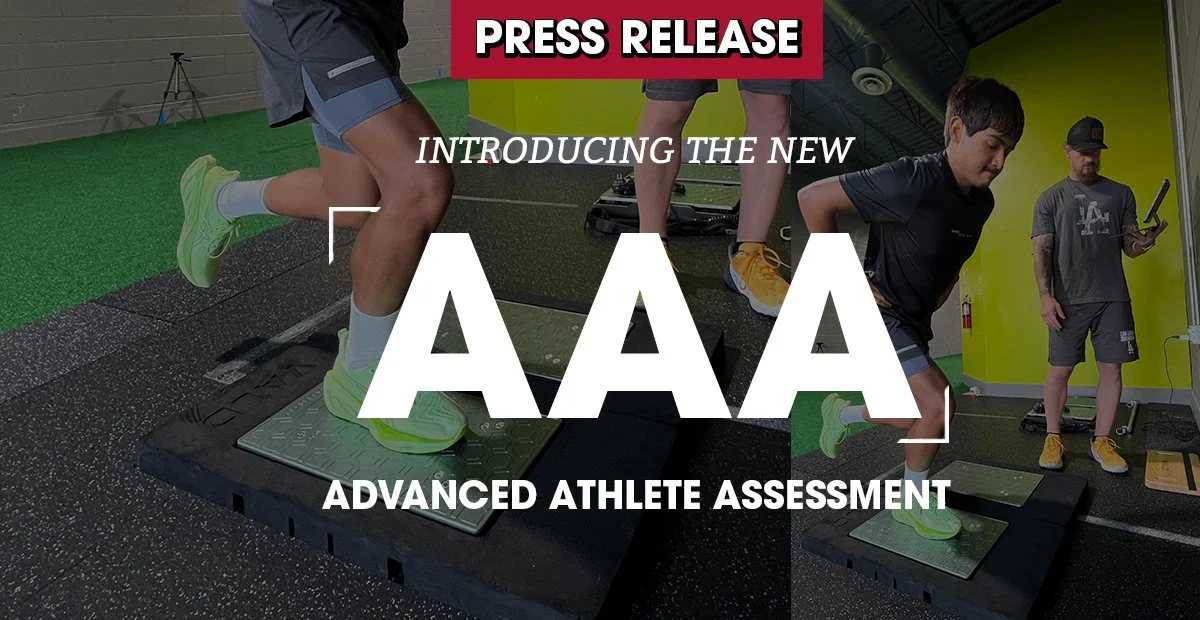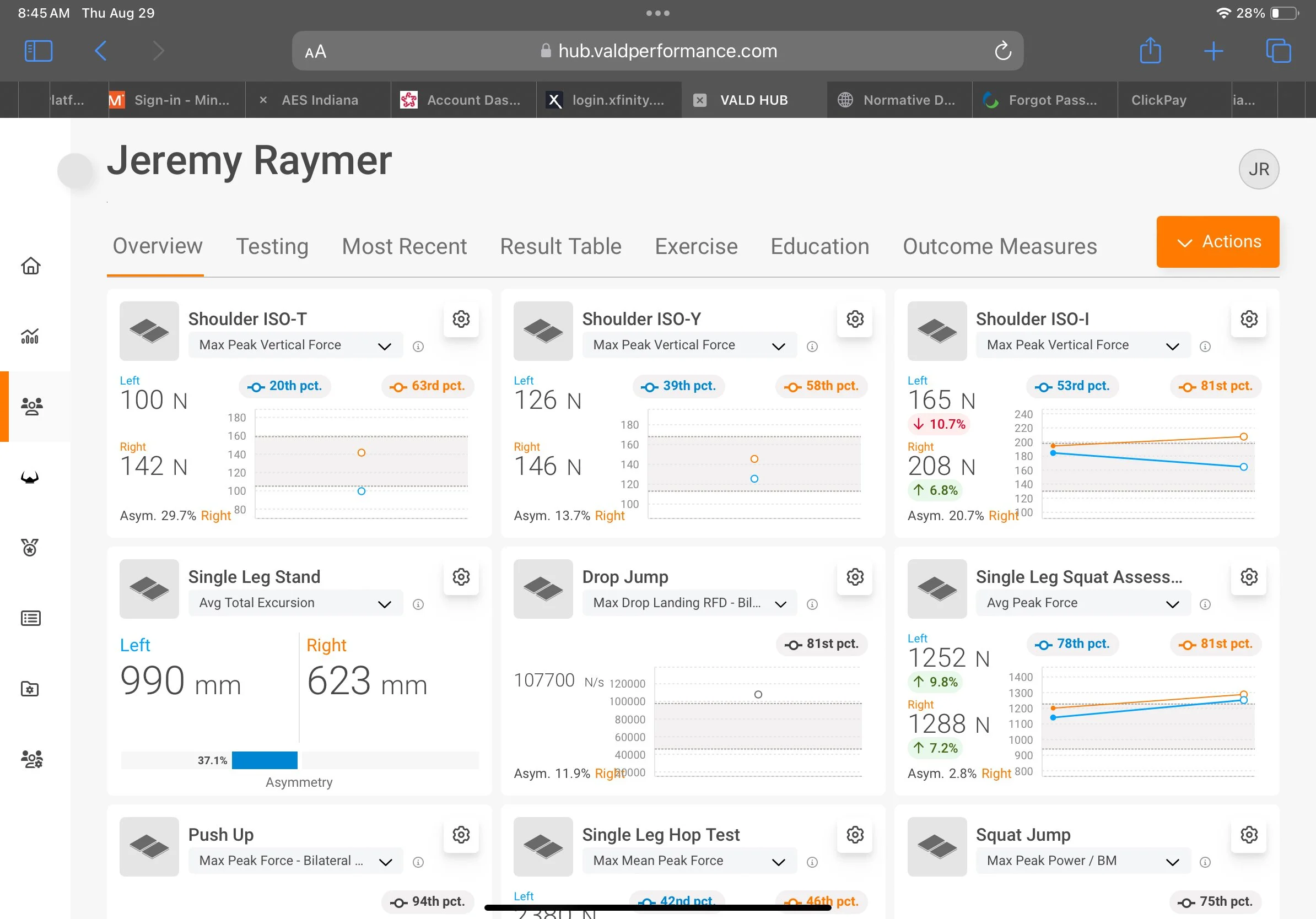Indy-area performance & rehab center offering new advanced athlete assessment
INDIANAPOLIS, IN — This fall, Raymer Strength & Rehab (RSR) is unveiling the Advanced Athlete Assessment (AAA). Building upon the existing Functional Movement Screen that RSR will continue to provide for every new athlete that enters their doors, the AAA dives deeper, using industry leading technology to establish baselines and track progress and recovery. The AAA is the latest opportunity in Raymer Strength & Rehab’s lineup to reduce the chances of, and track the recovery from, athlete injuries.
How does it work?
The AAA uses VALD Performance ForceDecks– force plate technology that’s often only seen in the collegiate or pro-levels, or at top-tier physical therapy providers due to the investment that’s required. The force plates detect the forces put into them and measure aspects of both the upper and lower body through a series of body movements.
Why is the AAA valuable?
Whereas the Functional Movement Screen gives coaches tools to see body imbalances, the AAA goes deeper, giving RSR’s staff literal numbers that can be measured over time. Athletes will know immediately what percentile their results land them in based on age and gender, and there is also some normative data for high school, collegiate, and professional organizations (depending on the sport).
Coach Dez performs the squat test on the force plates with Coach J monitoring his data output.
What are the sports medicine applications?
Force plate data, over time, gives therapists and doctors the information they need to determine athlete recovery and can better guide return-to-play protocols. If an athlete has baseline data recorded in the AAA before injury, doctors can know what those athletes need to get back to to be considered fully recovered.
Raymer Strength & Rehab is working with our in-house, contracted Physical Therapist, Dr. Miller, to add this force plate data to his patients’ experiences. And, RSR is partnering with area physical therapy providers this month to travel onsite and gather baselines for their clients. If you’re an Indiana-area physical therapy or athletic training provider, and want to partner with us, reach out to coachj@raymerstrength.com.
RSR will begin offering the Advanced Athlete Assessment to new and existing members this month, encouraging re-assessment every quarter to track progress (and raise red flags for potential injury) overtime. If you haven’t scheduled yours yet, text us or mention it the next time you’re in.
Learn how it works through analyzing Coach J’s AAA results
If you take a close look at Coach J’s shoulder data (the top row) starting with the first square (Shoulder ISO-T), there’s almost a 30% asymmetry between his Left and Right shoulders. You can also see in the next two squares (Shoulder ISO-Y and ISO-I) that there’s still a difference between left and right, though not as stark.
Coach J had a torn labrum and subsequent shoulder repair surgery in his early twenties due to his athletic career in a contact sport . He’s now experiencing shoulder pain and lack of mobility in his other shoulder. He might consider taking this data to an orthopedic surgeon if other recovery modalities don’t give him the results he needs.
Moving down to the second row, Coach J has some very different results between his Left and Right legs on the Single Leg Stand. Last year, Coach J had surgery on his right knee, which he’s still working on regaining full symmetry on. He plans on tracking this data over time as he continues to recover to ensure he’s doing everything he needs to do to get better.
That’s just a snapshot of what this data can do. It exposes old injuries that haven’t been fully recovered from, and throws up red flags for potential injuries that athletes might not even know about. The human body compensates for imbalances for as long as it can, so let’s identify these imbalances before they break!
Interested in the Advanced Athlete Assessment (AAA)?
###
Questions or comments?
Reach out to Rachael Raymer at rachael@raymerstrength.com or call her at 317-417-4797.



